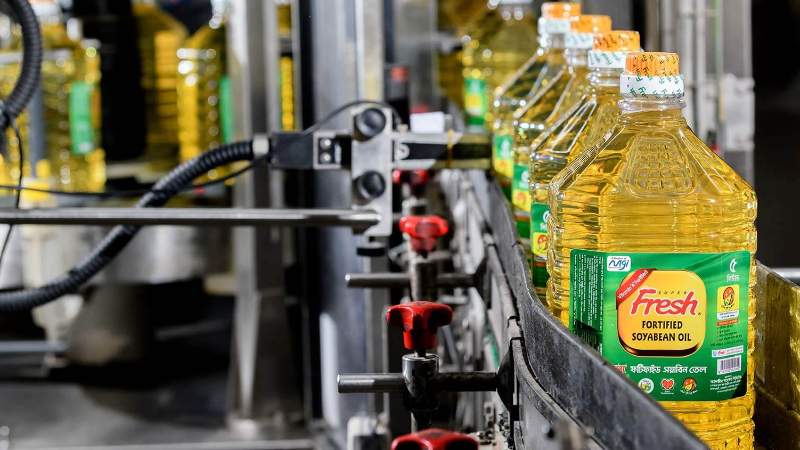GET IN TOUCH
- Please wait...

Soybean oil is the preferred cooking medium in Bangladesh with per capita oil consumption standing at 9.2 Kg per annum. According to MGI’s internal research, per capita consumption is highest in the EU (61 Kg), while Bangladesh’s consumption per capita (9.9 Kg) is much lower than the global average (25.2 Kg).
Demand for edible oil is set to increase in the coming decade with demand from developing countries set to surpass that of developed ones. Particular mention has been made about the economies of China, India, and Bangladesh, where edible oil is a basic commodity with growing demand.
According to a recent FAO report, global oilseed production is expected to grow by c.23% by 2020 with the US remaining as the main producer, followed by Brazil, China, Argentina, India, etc. Total production is expected to be within 505 million metric tons (M MT). Global vegetable oil production is set to reach 186 M MT within 2020 with an output growth of c.30%. Malaysia and Indonesia will jointly constitute 45% of raw material sourcing, while the majority of the rest will be catered by China, Argentina, and Brazil.
Bangladesh mostly imports raw materials from Indonesia, Malaysia, and Brazil. A look into import level indicates a fall in 2008, followed by increasing import in the following years.
The demand for edible oil in the domestic market is influenced by several factors. Edible oil like soybean is a crucial part of the local cuisine, over that, change in the income band, rural to urban migration, awareness towards health-conscious lifestyle, and socio-economic conditions also play a vital role in shaping the demand for the edible oil. As per industry estimates, there are at present 86 registered edible oil refineries with an annual refining capacity of 3.5MT, with the market being dominated by the top 9 major players which cumulatively account for 75% of the refining capacity which is 2.6 MT. The major players operating at an average capacity utilization of 50% with larger participants operating at a capacity of 65-70%.
Palm oil is the dominating edible oil market since 2003. In 2012, palm oil occupied about 64 percent market share among the three major edible oils. Palm oil is imported both in crude and refined forms. Crude palm oil (CPO) and crude palm olein (CPL) are refined in local refineries for marketing the refined products. The imported refined palm oil and refined palm olein are used by vanaspati manufacturers and the food processing industries. Its import and consumption quantity has now exceeded one million tons, which is likely to grow further to 1.5 million tons in near future.
[Note: Palm oil includes crude palm oil, crude palm olein, refined palm oil, and refined palm olein; Soybean oil includes crude degummed soybean oil, and crude soybean oil obtained locally from imported Soybean; Canola/ Mustard oil is the oil obtained locally from imported canola/mustard seed.]
Malaysia and Indonesia are the two major supply sources of palm oil for the Bangladesh market. During January-August 2013, the total import of palm oil was 875,809 tons of which 357,228 tons or about 41 percent was Malaysian palm oil (MPO) and 518,581 tons or about 59 percent was Indonesian palm oil. The import quantity of Malaysian palm oil during the January-August period of 2013 was higher by 95.62 percent compared to the January-August period of 2012. This increase in import of Malaysian palm oil in 2013 has been due to the active presence of MPO suppliers in the Bangladesh market and shifting of supply sources from Indonesia to Malaysia by some of the Singapore-based trading houses, which are active in the Bangladesh market, also contributing to increasing of Malaysian palm oil’s import share in the country in 2013.’
Our experts can help you solve your unique challenges
Stay up-to-date with our Thought Leadership and Insights